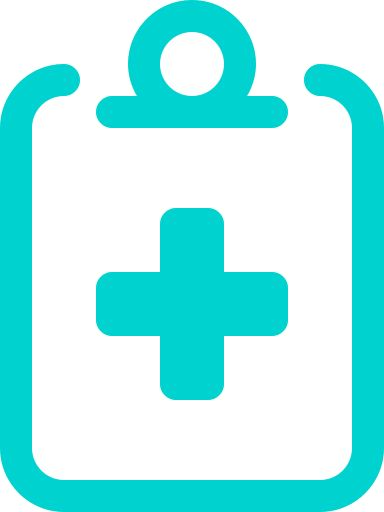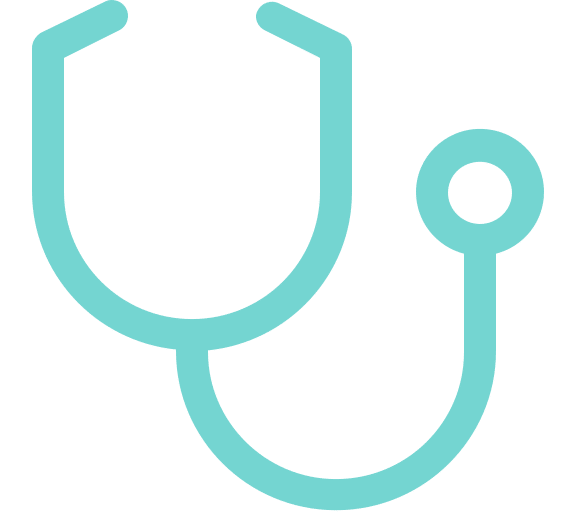Online Prescription
Hypothyroidism Treatment
Ireland’s Award-Winning Online Doctor Service


Hypothyroidism Treatments That We Can Provide
Although Hypothyroidism cannot be prevented, most cases can be treated with medication (tablets) to replace the thyroxine that your thyroid isn’t making. We can provide a 6-month prescription for hypothyroidism treatment through our online prescription service, where clinically appropriate.
We issue prescriptions for generic name medicines to ensure maximum availability of treatments. Please check your dispensed prescription before leaving the pharmacy as no changes can be made after that point.
- Oral Thyroid Hormone (T4)
Included:
- We can prescribe thyroid hormone (T4) tablets. Please be aware, we are not able to prescribe other thyroid medications via this service but you can book a Video Consultation to speak with one of our GPs instead.
Excluded:
- This service is not suitable for you if:
- You have not been diagnosed with hypothyroidism by a doctor
- You require a change to your dose of medication
- You are pregnant or breastfeeding
- You are seeking T3 or a medication not listed in our medical questionnaire.
Important Medical Information
Who is this service suitable for?
This service is suitable for you if you :
- Are 17 years or older
- Have been diagnosed with Hypothyroidism
- Are using T4 medication to manage this
- Are stable on your current treatment for at least 6 months (no medication changes are required)
- Have a copy of your most recent thyroid blood results (within the past year)
Who is this service not suitable for?
This service is not suitable for you if:
- You have not been diagnosed with Hypothyroidism by a doctor
- You have not been commenced on treatment
- You are seeking T3 or a medication not listed in our medical questionnaire
- You require a change to your dose of medication
- You are pregnant or breastfeeding
What is the Thyroid Gland?
The thyroid gland is located in the neck and produces thyroid hormones, Thyroxine (T4) and Triiodothyronine (T3).
These regulate the body’s metabolism and are essential to the functioning of many cells in the body. The release of T3 and T4 is controlled by the levels of Thyroid Stimulating Hormone (TSH), which is released from an area of the brain called the pituitary gland. One group of hormones regulates the other – when one is too high it stimulates increased release of the other and vice versa.
What is Hypothyroidism?
Hypothyroidism is when your thyroid gland does not produce enough thyroid hormone (T3 & T4). It is often referred to as having an ‘underactive thyroid’.
As T3 & T4 levels are low, the pituitary releases more TSH, and if there is no associated increase in T3 &T4, it will release more. As a result the TSH level will be high and the T4 level will be low.
When there is not enough thyroid hormone, lots of the body’s functions slow down, and it is this process that causes the symptoms of Hypothyroidism.
What are the most common causes of Hypothyroidism?
Autoimmune Thyroiditis is the most common cause of Hypothyroidism in Ireland.
This occurs when your body produces antibodies to the thyroid gland which ‘attack’ it, preventing it from functioning properly.
In some patients, this will cause the thyroid gland to enlarge. This is known as a Goitre. If this occurs when you have Autoimmune Thyroiditis, it is called Hashimoto’s Disease.
Other less common causes include:
- Damage to the thyroid gland from
- Previous thyroid surgery or thyroid treatment e.g. radioactive treatment
- Iodine deficiency (This is the most common cause worldwide, but uncommon here in Ireland.)
- Side effects of certain medications
- Congenital (born with Hypothyroidism)
- Pituitary Gland Dysfunction (The pituitary is part of the brain that controls the production of thyroid hormone)
What are the most common symptoms of Hypothyroidism?
There are many different symptoms as the metabolism of most cells in the body are affected.
The most common symptoms are:
- Fatigue
- Constipation
- Weight gain
- Dry skin
- Low mood/ lack of motivation
- Always feeling cold
- General aches and pains
- Hoarse voice
It can also cause decreased libido and fertility problems.
In females it can cause irregular menstrual cycles, and in older populations it can cause memory problems.
These symptoms vary from patient to patient, and often will develop slowly over many years, so they can be difficult to recognise.
What is Subclinical Hypothyroidism?
Subclinical Hypothyroidism occurs when your blood tests are a little abnormal; the TSH level is raised but your T3 & T4 levels are normal. It suggests that the thyroid gland needs extra stimulation to release the thyroid hormones.
How this is managed varies from patient to patient and it depends on your age, if you have symptoms, and what your TSH result is.
Why do I need to take treatment for Hypothyroidism?
Firstly, you can feel unwell and have troublesome symptoms if you have an untreated underactive thyroid gland.
Secondly, your risk of heart disease is increased as untreated Hypothyroidism causes increased levels of cholesterol.
What treatment can we prescribe?
Please be aware, we are not able to prescribe other thyroid medications via this service.
How do I use T4 thyroid tablets?
They are taken every day, and usually lifelong.
The dose may need to be adjusted from time to time.
It is advised that you have your thyroid function (blood tests) checked once per year, once you are stable, or more often if you are concerned your symptoms are not well controlled or you are planning a pregnancy or are pregnant.
Your TSH level is what is used to assess if you are on the correct dose of medication.
What are the most common side effects of T4 medication?
The most common side effects include:
- Nausea/ vomiting/ diarrhoea
- Headaches
- Flushing/ sweating
- Tremors/ shaking
- Weight loss
- Palpitations, chest tightness, irregular heart beat
- Insomnia
- Agitation, restlessness
- Feeling generally unwell
The most common reason for side effects is that your medication dose is too high. They usually settle when the dose is adjusted.
Please ensure you read the patient information leaflet that comes with your medication for full details of potential side effects.
Can Hypothyroidism affect pregnancy?
Hypothyroidism can cause fertility problems. Ideally, if you are planning to conceive you should aim to ensure that your thyroid treatment is stable and within the recommended range to optimise your chances of becoming pregnant.
If you do become pregnant, your thyroid treatment requirements will increase from early pregnancy and your blood tests and medication dose will need to be reviewed at regular intervals. It is best to get advice from your doctor as soon as you know you are pregnant.
During pregnancy there is an increased risk of some complications such as Anaemia, misscarriage, Pre-Eclampsia, premature labour and low birth weight.
If your thyroid hormone levels are monitored regularly and treated appropriately, then you are unlikely to develop any complications.
If you would like to discuss this further, please make an appointment to see one of our online doctors.
Is there a specific Hypothyroidism diet that I should follow?
There is no medical evidence that avoiding or eating certain foods will have any significant effect on your thyroid function.
It is important to note that adequate dietary iodine is essential for healthy thyroid functioning. In Ireland, most people get more than adequate amounts from their diet.
We would advise that you follow a healthy, balanced diet with lots of fresh unprocessed food. If you consume alcohol, you should follow the recommended advice on how much.
How It Works
Requesting a prescription for Hypothyroidism Treatment couldn’t be easier with Webdoctor.ie! Simply fill in a medical questionnaire and a prescription will be issued if clinically suitable.

Step 1
Online Questionnaire

Step 2
Medical Review

Step 3
Decision Made
Webdoctor.ie
Customer Review
Why Choose Webdoctor.ie?

Expertise
All of our doctors are registered with the Irish Medical Council and provide convenient and confidential healthcare to our patients.
Confidential
Caring
Convenience
Value
Irish
Webdoctor.ie is an Irish-based healthcare provider that has carried out over 130,000 patient consultations.
Webdoctor.ie In The Media
As Ireland's leading online doctor service, Webdoctor.ie is regularly featured in the national media.
Want to know more about us?
Visit our media page